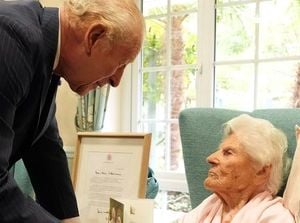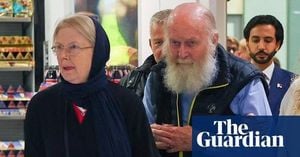Vodafone and Three UK are gearing up for a significant shift in the telecommunications landscape as they explore plans to launch a new Pay TV service following their recently approved merger. This £15 billion deal, which received the green light from the Competition and Markets Authority (CMA) in December 2024, is set to create the UK’s largest mobile provider with approximately 27 million customers.
The merger, initially announced in June 2023, is expected to complete in the first half of 2025. Vodafone will retain a 51% stake in the newly formed entity, while CK Hutchison, which owns Three UK, will hold 49%. The companies have long touted this merger as beneficial for customers and competition, promising a substantial £11 billion investment aimed at enhancing the UK’s 5G mobile infrastructure.
As part of their strategic plans, Vodafone and Three are reportedly discussing the integration of a new subscription TV service, which would bundle television offerings with existing broadband and mobile plans. Sources indicate that discussions are still in the early stages, with no set launch date yet. However, the potential service is expected to include live programming and access to popular third-party streaming platforms such as Netflix and Amazon Prime.
Mark Newman, Chief Analyst at TM Forum, noted that telecom companies have experienced mixed results when diversifying into TV services. He highlighted that while the proposed TV service could strengthen Vodafone and Three’s foothold in the broadband market, the traditional Pay TV model is facing challenges as more consumers shift towards independent streaming services.
Karen Egan from Enders Analysis pointed out that while there are opportunities for Vodafone to cross-sell its broadband products to Three’s 9.3 million mobile subscribers, the broadband market remains tough, with slim profit margins limiting the incentives they can offer. Egan stated, "There are certainly some opportunities for cross-selling Vodafone’s broadband product to Three’s 9.3 million mobile subscribers, but broadband is a really tough market right now with very slim margins so they’ll be quite constrained in the level of incentive discounts they can offer."
Despite the challenges in the broadband sector, Vodafone has seen a positive uptake of its broadband offerings in recent years. The company has been proactive in expanding its services, having established partnerships with Openreach and CityFibre, which allow it to provide a comprehensive range of broadband options to consumers across the UK.
The merger has been framed as a necessary move to compete against established players like BT/EE and Virgin Media O2, both of which already offer pay-TV bundles. Vodafone and Three argue that this consolidation is vital for achieving the scale needed to upgrade their 5G networks and improve service delivery.
However, the merger also raises questions about market dynamics, as it will reduce the number of major mobile network operators in the UK from four to three. This consolidation could lead to increased competition concerns, particularly regarding pricing and service offerings for consumers.
Vodafone’s spokesperson commented on the merger, stating that it is still too early to provide details regarding future plans following the merger. They emphasized that the focus remains on completing the merger and ensuring a smooth transition for customers.
In the context of rising competition and consumer preferences shifting towards streaming services, the launch of a new Pay TV service could be a strategic move for Vodafone and Three. It reflects a broader trend among telecom companies seeking to diversify their offerings and enhance customer loyalty through bundled services.
However, analysts caution that the success of such a service will depend on how well it can compete with existing offerings in an increasingly crowded market. The challenge lies in creating a compelling value proposition that attracts consumers who have become accustomed to a variety of standalone streaming options.
As Vodafone and Three navigate this new venture, the telecommunications industry will be watching closely to see how they adapt to the evolving landscape. The potential for innovation in service delivery and customer engagement remains high, but it will require careful strategy and execution to realize the envisioned benefits of this merger.
The implications of this merger extend beyond just the companies involved; they could reshape the competitive landscape of the UK telecommunications market. If successful, the new entity could set a precedent for future mergers and partnerships in the industry, potentially leading to further consolidation as companies seek to enhance their service offerings amid changing consumer preferences.
In summary, as Vodafone and Three prepare to finalize their merger and explore new service offerings, the telecommunications sector stands at a crossroads. The decisions made in the coming months will not only impact the future of these two companies but could also influence the broader market dynamics, shaping how consumers access and enjoy telecommunications services in the UK.




